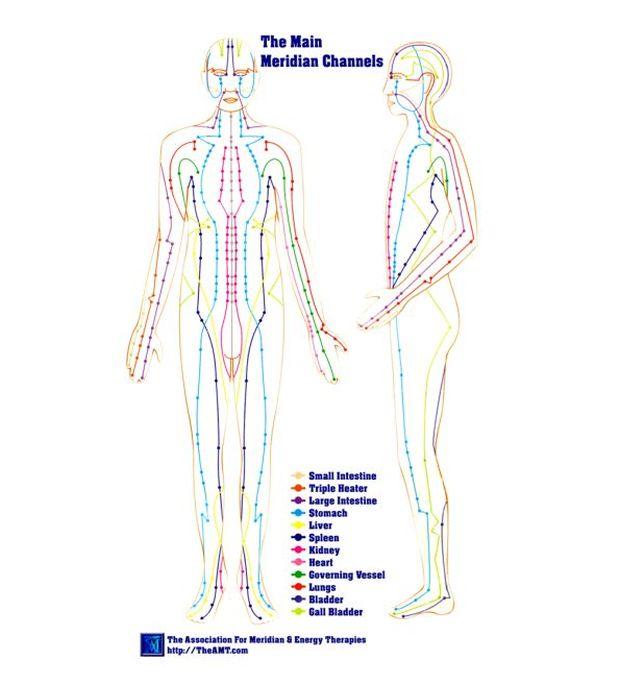What Is Obesity?
Obesity is an epidemic in the U.S. This condition puts people at a higher risk for serious diseases, such as type 2 diabetes, heart disease, and cancer. According to the Centers for Disease Control and Prevention (CDC), it is estimated that more than one-third of American adults (34.9 percent) and 17 percent (12.7 million) of American children and teens are clinically obese.
Obesity is defined as having a body mass index (BMI) of 30 or more. BMI is a calculation that takes a person’s weight and height into account. However, BMI does have some limitations. According to the CDC, “Factors such as age, sex, ethnicity, and muscle mass can influence the relationship between BMI and body fat. Also, BMI does not distinguish between excess fat, muscle, or bone mass, nor does it provide any indication of the distribution of fat among individuals.” Despite these limitations, BMI continues to be widely used as an indicator of excess weight.
What Causes Obesity?
Eating more calories than you burn in daily activity and exercise (on a long-term basis) causes obesity. Over time, these extra calories add up, and cause you to gain weight.
Common specific causes of obesity include:
- eating a poor diet of foods high in fats and calories
- having a sedentary (inactive) lifestyle
- not sleeping enough, which can lead to hormonal changes that make you feel more hungry and crave certain high-calorie foods
- genetics, which can affect how your body processes food into energy and how fat is stored
- growing older, which can lead to less muscle mass and a slower metabolic rate, making it easier to gain weight
- pregnancy (weight gained during pregnancy can be difficult to lose and may eventually lead to obesity)
Certain medical conditions may also lead to weight gain. These include:
- polycystic ovary syndrome (PCOS): a condition that causes an imbalance of female reproductive hormones
- Prader-Willi syndrome: a rare condition that an individual is born with which causes excessive hunger
- Cushing’s syndrome: a condition caused by having an excessive amount of the hormone cortisol in your system
- hypothyroidism (underactive thyroid): a condition in which the thyroid gland does not produce enough of certain important hormones
- osteoarthritis (and other conditions that cause pain that may lead to inactivity)
Who Is at Risk for Obesity?
A complex mix of genetic, environmental, and psychological factors can increase a person’s risk for obesity.
Genetics
Some people possess genetic factors that make it difficult for them to lose weight.
Environment and Community
Your environment at home, at school, and in your community can all influence how and what you eat and how active you are. Maybe you have not learned to cook healthy meals, or do not think you can afford healthier foods. If your neighborhood is unsafe, maybe you have not found a good place to play, walk, or run.
Psychological and Other Factors
Depression can sometimes lead to weight gain, as an individual turns to food for emotional comfort.
Quitting smoking is a good thing, but quitting can also lead to weight gain, so it is important to focus on diet and exercise while you are quitting.
Medications such as steroids and certain antidepressants or birth control pills can also put you at greater risk for weight gain.
How Is Obesity Diagnosed?
Obesity is defined as having a BMI of 30 or more. Body mass index is a rough calculation of a person’s weight in relation to their height.
Other more accurate measures of body fat and body fat distribution include skinfold thickness, waist-to-hip comparisons, and screening tests such as ultrasound, computed tomography (CT), and magnetic resonance imaging (MRI) scans.
Your doctor may also order certain tests to help diagnose obesity as well as obesity-related health risks. These may include blood tests to examine cholesterol and glucose levels, liver function tests, diabetes screen, thyroid tests, and heart tests, such as an electrocardiogram. A measurement of the fat around your waist is also a good predictor of risk for obesity-related diseases.
What Are Complications of Obesity?
Obesity leads to much more than simple weight gain. Having a high ratio of body fat to muscle puts strain on your bones as well as your internal organs. It also increases inflammation in the body, which is thought to be a cause of cancer. Obesity is also a major cause of type 2 diabetes.
Obesity has been linked to a number of health complications, some of which are life-threatening:
- type 2 diabetes
- heart disease
- high blood pressure
- certain cancers (breast, colon, and endometrial)
- stroke
- gallbladder disease
- fatty liver disease
- high cholesterol
- sleep apnea and other breathing problems
- arthritis
- infertility
How Is Obesity Treated?
If you are obese and have not been able to lose weight on your own, medical help is available. Start with your family physician, they may be able to refer you to a weight specialist in your area. Your doctor may also want to work with you as a team to help you lose weight, along with a dietitian, therapist, and other healthcare staff.
Your doctor will work with you on making lifestyle changes. Sometimes, they may recommend medications or weight loss surgery as well.
Lifestyle and Behavior Changes
Your healthcare team can educate you on better food choices and help develop a healthy eating plan that works for you. A structured exercise program and increased daily activity — up to 300 minutes a week — will help build up your strength, endurance, and metabolism. Counseling or support groups may also identify unhealthy triggers and help you cope with any anxiety, depression, or emotional eating issues.
Medical Weight Loss
Your doctor may also prescribe certain prescription weight loss medications in addition to healthy eating and exercise plans. Medications are usually prescribed only if other methods of weight loss have not worked, and if you have a BMI of 27 or more in addition to obesity-related health issues.
Prescription weight loss medications either prevent the absorption of fat or suppress appetite. These drugs can have unpleasant side effects. For example, the drug orlistat (Xenical) can lead to oily and frequent bowel movements, bowel urgency, and gas. Your doctor will monitor you closely while you are taking these medications.
Weight Loss Surgery
Weight loss surgery, commonly called bariatric surgery, requires a commitment from patients that they will change their lifestyle. These types of surgery work by limiting how much food you can comfortably eat or by preventing your body from absorbing food and calories. Sometimes they do both.
Weight loss surgery is not a quick fix. It is a major surgery and can have serious risks. After surgery, patients will need to change how they eat and how much they eat or risk getting sick.
Candidates for weight loss surgery will have a BMI of 40 or more, or have a BMI of 35 to 39.9 along with serious obesity-related health problems.
Patients will often have to lose weight prior to undergoing surgery. Additionally, they will normally undergo counseling to ensure that they are both emotionally prepared for this surgery and willing to make the necessary lifestyle changes that it will require.
Surgical options include:
- gastric bypass surgery, which creates a small pouch at the top of your stomach that connects directly to your small intestine. Food and liquids go through the pouch and into the intestine, bypassing most of the stomach.
- laparoscopic adjustable gastric banding (LAGB), which separates your stomach into two pouches using a band
- gastric sleeve, which removes part of your stomach
- biliopancreatic diversion with duodenal switch, which removes most of your stomach
What Is the Long-Term Outlook for Obesity?
There has been a dramatic increase in obesity in the U.S. over the past 20 years, as well as obesity-related diseases. This is the reason why communities, states, and the federal government are putting an emphasis on healthy food choices and activities to help turn the tide on obesity. Ultimately, however, the responsibility is on each of us to make these healthy changes.
How Can You Prevent Obesity?
Help prevent weight gain by making good lifestyle choices. Aim for moderate exercise (walking, swimming, biking) for 20 to 30 minutes every day.
Eat well by choosing nutritious foods like fruits, vegetables, whole grains, and lean protein. Eat high-fat, high-calorie foods in moderation.
-
Free Weight Loss Programs That Actually Work Fast
No charge weight loss programs that work fast are a request I get freq
-
Could Weight Loss Hypnosis Help Shed The Pounds?
Traditional diets don’t really work – as over 98% of peopl
-
Weight Loss Help Free Tips and Programs Online
by Emily Schwartz There are plenty of weight loss help free programs t
-
‘Heaviest’ British man sheds record weight in India!
-
Fittest Indian celebs of 2012
-
Actual Fats Loss four Idiots Review
Fats loss four idiots is a new weight-reduction plan plan that claims
- DON'T MISS
- The Simple Key to a Rapid Weight Loss Diet
- Natural weight loss – What to eat?
- Fat Loss Suggestions : Tiny Life-Style Modifications Can Assist You Reduce Weight More Quickly
- Will I lose weight with HoodiaPatch
- Losing Bodyweight:The Easy Science of Losing Bodyweight
- Weight Loss Tips Intended For The Common Person
- Combination of house workout and losing weight Reductil diet pills pills for losing weight
- Meratol: Could this answer your New Years Resolutions for Weight Loss and Health
- How To Eliminate Weight In Two Weeks – For Good!
- How Should You Lose Weight With A Plan




